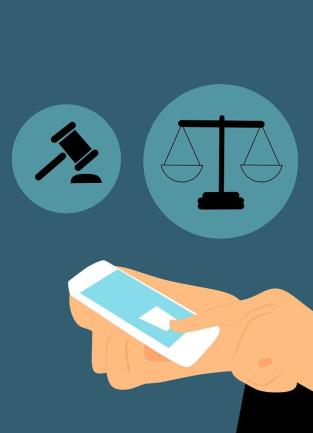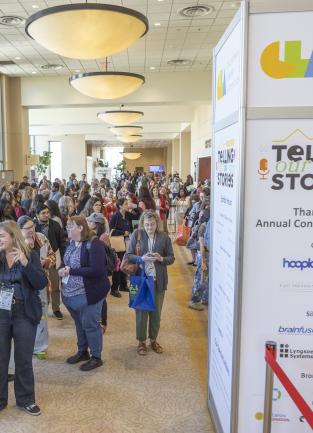National Law day and the Constitution: A review of the National Constitution Center’s discussion with Professor Erwin Chemerinsky

Fri, 29/04/2022 - 05:00
National Law Day is celebrated annually on May 1. The 2022 Law Day theme is “Toward a More Perfect Union: The Constitution in Times of Change.” This year, President Biden issued a Presidential Proclamation for National Law day 2022. In honor of the theme, Riverside County Law Library staff watched a series of interactive learning videos from the National Constitution Center. This blog post will provide a brief overview of the recent video titled “The Bill of Rights Featuring Professor Erwin Chemerinsky”
You may watch the full discussion here: https://www.youtube.com/watch?v=V2tjh0vWdg0
In this webinar, scholars from different backgrounds were able to view a thought-provoking discussion between Professor Erwin Chemerinsky and Jeffrey Rosen, National Constitution Center President and CEO. Professor Chemerinsky, Dean and Jesse H. Choper Distinguished Professor at Berkeley Law, shares their thoughts on the First Amendment of the United States Constitution. The discussion ranges from the origins of the amendment, the impact of social media in today’s society, and how we can educate others on the importance of free speech.
Professor Chemerinsky begins by discussing the wide range of freedoms outlined in the First Amendment. He connects them by stating that “the similarity between freedom of speech and freedom of religion are united by the idea of freedom of conscience.” Conscience meaning the freedom of thought that unites all five clauses of the First Amendment.
Professor Chemerinsky states that the core of the First Amendment is democracy. For example, it is structured to not require any licensing or prior permission from the government to install restrictions on freedom of speech. Thomas Jefferson first brought up the discussion on religious freedom with his proposal of the Virginia Statute for Religious Freedom. It discussed whether or not the state of Virginia could impose a tax to support churches. Jefferson and Madison opposed this and brought up the notion that church and state should be separate. Freedom of Conscience cannot operate when the government takes a stance on religion and establishes that the government must remain secular.
Challenges to Free Speech were more prominent in the aftermath of World War I. Notable cases included Schenck v. United States and Debs v. United States. Schenck distributed leaflets saying that the draft was similar to involuntary servitude and was against the Thirteenth Amendment. He was convicted and the Supreme Court upheld that the leaflets presented a “clear and present danger.” Justice Oliver Wendel Holmes compared the leaflets to falsely shouting “fire!” in a crowded theater. Professor Chemerinsky concludes that these cases did not set a tone that protected free speech, instead it gave protection to the government. Whether or not we agree now that the ruling was correct, it does provide an early example of free speech being challenged.
Professor Chemerinsky goes on to discuss the First Amendment in the wake of Social Media, the Internet, and the digital age of the 21st century. He states that social media is a double edge sword. It gives the public the ability to cancel people, spread disinformation, and to harm privacy. It also creates a space for deep fakes, fake news, hate speech, and the dark web. However, it also ushered in the golden age of free speech where anyone with a smartphone can share their opinion, start movements, or spread awareness. Professor Chemerinsky believes that social media is the most important development in regard to speech since the printing press. Navigating both sides of the issue has brought up questions related to government regulation of Social Media companies like Facebook and Twitter. However, Professor Chemerinsky argues that if the government tried to regulate Facebook or Twitter, it would be a violation of the first amendment since it would restrict and moderate speech. The issue is the sheer amount of content on these sites. Professor Chemerinsky reasons that we have to have faith in the people. The alternative is to have faith in the government and that is the antithesis of the purpose of the constitution. Social media undermines this faith and gives humanity its greatest challenge.
Professor Chemerinsky ends the discussion with the strong statement, “We don’t need free speech for what we like, we need free speech for what we don’t like.” There are current political discussions surrounding topics that support the human instinct to shut down discussion we don’t like. Professor Chemerinsky proposes that the solution is to educate students on free speech, and why it is a fundamental value, through civic education.
Members of the public of all ages can engage in civic education through school, discussion of current events, and utilizing local resources. RCLL aims to contribute to the community's civic education by providing free access to e-resources and public programs. Such as access to digital books through the Lexis Digital Library and Public program recordings available on our YouTube Channel. We recommend viewing the various National Law Day events from the Library of Congress and the American Bar Association. If you are interested in learning more about RCLL’s services, visit our website for information on how to sign up for the Lexis Digital Library and more!
Written by: Andy Valencia, Reference Librarian
References and links to additional resources:
ABA You Tube https://www.youtube.com/channel/UCRwfXBktAIzjQ-j6AJ1Og3w
Abrams v. United States (1919) https://www.mtsu.edu/first-amendment/article/328/abrams-v-united-states
Berkley Law https://www.law.berkeley.edu/our-faculty/faculty-profiles/erwin-chemerinsky/#tab_profile
Debs v. United States https://www.oyez.org/cases/1900-1940/249us211
Library of Congress National Law Day https://blogs.loc.gov/law/2022/04/a-conversation-with-the-law-librarian-of-congress-aslihan-bulut-and-the-national-law-day-chair-orlando-lucero/
National Constitution Center Jeffrey Rosen https://constitutioncenter.org/about/president-and-ceo/biography
National Constitution Center YouTube page https://www.youtube.com/user/ConstitutionCenter/videos
Riverside County Law Library You Tube https://www.youtube.com/channel/UCahnQXjcUvMOHYfFV1kz74Q
Schenck v. United States https://www.oyez.org/cases/1900-1940/249us47
SCHENCK v. UNITED STATES HOLMES OPINION https://www.law.cornell.edu/supremecourt/text/249/47
THOMAS JEFFERSON AND THE VIRGINIA STATUTE FOR RELIGIOUS FREEDOM https://virginiahistory.org/learn/thomas-jefferson-and-virginia-statute-religious-freedom
United Nations Module 1: Freedom of conscience #Faith4Rights toolkit https://www.ohchr.org/en/faith-for-rights/faith4rights-toolkit/module-1-freedom-conscience
Whitney v. California (1927) https://www.mtsu.edu/first-amendment/article/263/whitney-v-california











